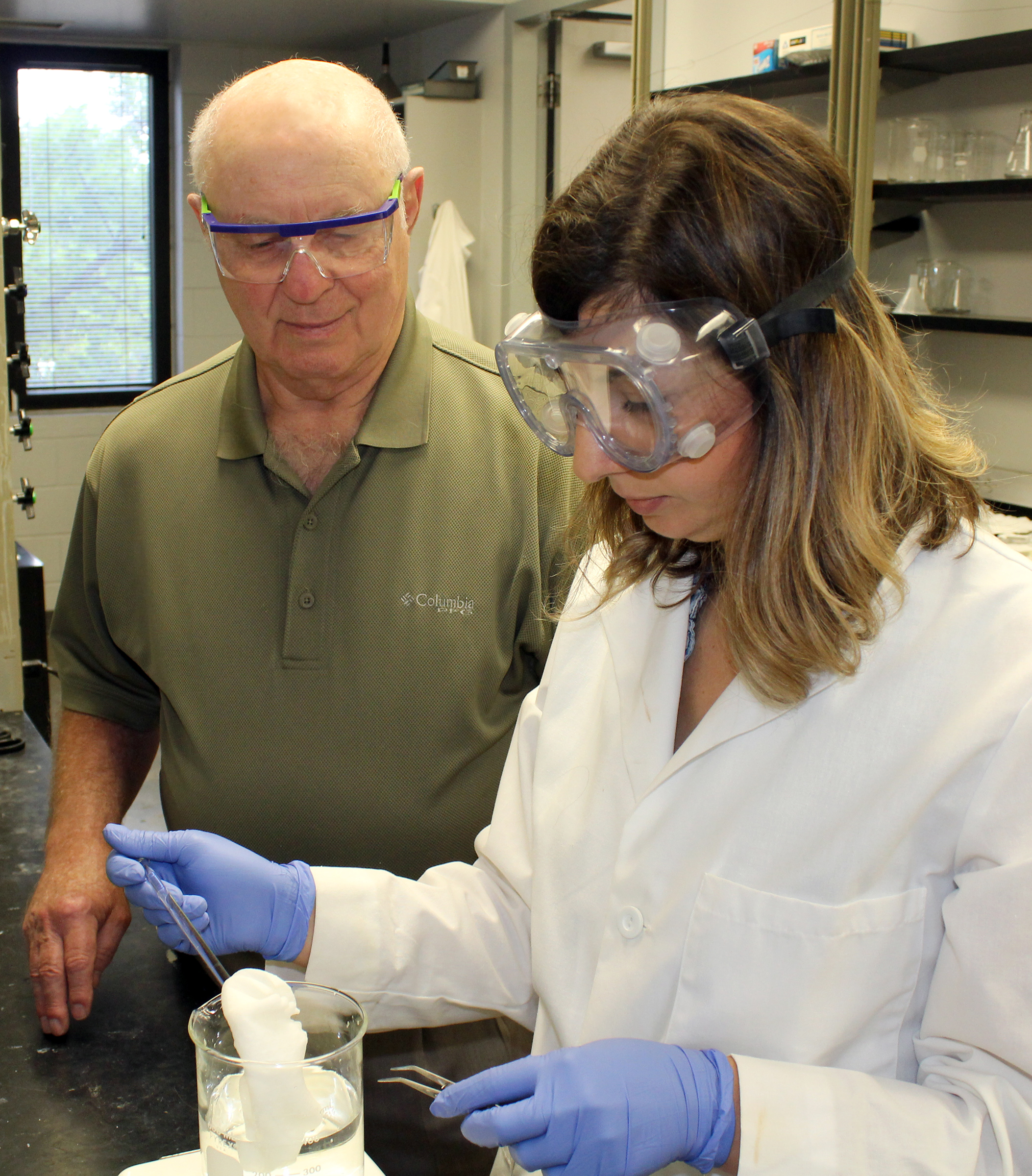Auburn professor develops cost-effective, staph-resistant bandage
Staph infections affect thousands of people each year, often occurring as a person recovers from surgery or a wound. But an Auburn University professor has developed a better bandage that could keep you from becoming infected.
Professor Emeritus Dave Worley of the Department of Chemistry and Biochemistry in the College of Sciences and Mathematics is applying his patented N-halamine chemistry to gauze bandages to kill any bacteria that might contact a wound.
"A 2-inch-square bandage would cost only 3-4 cents more than a regular bandage," Worley said. "We tested it on Staphylococcus aureus and Pseudomonas aeruginosa. It kills them before they can infect the wound. Once a person becomes infected, the bacteria are hard to kill, especially if they are resistant to antibiotics."
Worley's process works by soaking the gauze in a solution of alcohol and an N-halamine compound containing chlorine. When the alcohol evaporates, the remaining solid, bacteria-killing compound adheres electrostatically to the bandage.
"You can shake the bandage, but the compound won't come out," said Worley, who says current bandages with silver also kill bacteria, but they are costly at up to $500 each. "We are at least as effective as silver at only a fraction of the cost."
Worley's research shows that N-halamine bandages should be kept away from light prior to use. "Our stability is good if you keep the bandages in opaque packages," he said. "Most wound dressings are replaced every one to two days, so ours are effective throughout the time they are worn."
The technology also works for air filters, surgical masks or any other disposable fibrous structure.
Worley's proof-of-concept research was funded by Auburn University's LAUNCH program that helps faculty move research ideas closer to the marketplace. He conducted the research with Professor T.S. Huang of the Department of Poultry Science, College of Agriculture; Professor Emeritus Roy Broughton of the Department of Mechanical Engineering, Samuel Ginn College of Engineering; and postdoctoral fellow Buket Demir of the Department of Chemistry and Biochemistry, College of Sciences and Mathematics.
Auburn's Office of Innovation Advancement and Commercialization has filed a U.S. patent application for the bandages, and is in the process of filing in multiple foreign territories, including Europe and several countries in Asia. The office is also pursuing licensing, including the possibility of forming a start-up company. Worley currently has 40 patents for developing the N-halamine chemistry, which was used to help form the HaloSource company in 1998 for bacteria-killing, rechargeable water filters.
"We are excited about licensing his bandage technology," said Brian Wright, associate director for commercialization. "This technology has application in health care as well as consumer products. The market potential is tremendous, but so is the possible positive impact on public health."
BY CHARLES MARTIN

Categories: Health Sciences
Back to Articles




